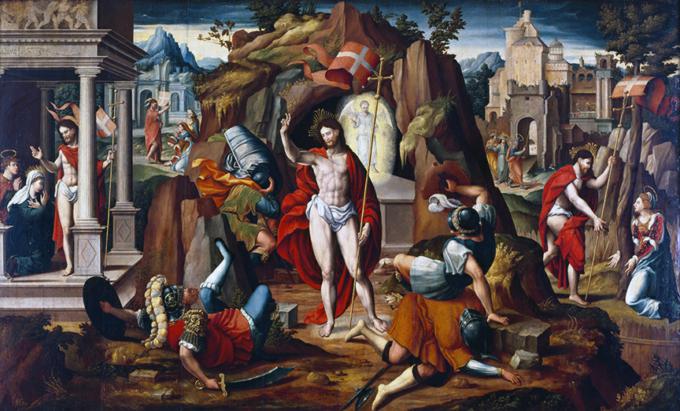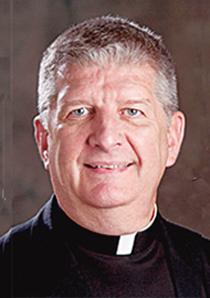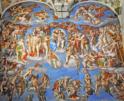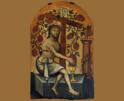
Faith
During this season-long celebration, we are invited to be exuberant in our festivities.

O’Grady
The most important celebration of the church's entire liturgy is this Solemnity of the Resurrection of Our Lord and Savior Jesus Christ -- Easter. It is so important that it takes a full 50 days to observe and celebrate.
It was also the original and only feast day. It had its own date, sometimes calculated in different ways, causing very serious divisions even in the early church. Each Sunday was to be a "little Easter" and Easter was to be the "biggest Sunday."
Books, treatises, doctoral dissertations, and scholarly papers have addressed this over the centuries. They all agree, however, that Easter is the day for Christians. This year, the day is March 31, one of the earliest possible dates for Easter; in 2025, it will be April 20, one of the latest possible dates. In 2025, it will also be the date when many Christians of the Eastern Churches will also celebrate Easter.
During this season-long celebration, we are invited to be exuberant in our festivities. The late Msgr. Dennis F. Sheehan, a man of wit and many apt quips, averred, "Anything doing well was worth doing to excess" and certainly his advice applies to the Easter season.
Looking at the Mass prayers we hear much about "joy at Christ's rising from the dead," about the "paschal mystery," about the mission which is the church. Listen with mind and heart as the priest utters the prayers in our name at the collect, the prayer over the gifts, the preface of the Eucharistic Prayer, the prayer after Communion, and the solemn blessing just before the dismissal.
The Gloria and the Alleluia before the Gospel have returned. Both should be sung by the assembly at every Mass, if at all possible, but especially during this season.
The Liturgy of the Word has a particular quality in the Easter season. That is, except for the Psalms, every reading at any liturgical celebration -- Holy Mass with or without the celebration of another sacrament, the Liturgy of the Hours, the celebration of a sacrament apart from Mass, -- is to be taken from the New Testament.
Usually, this means we'll hear a first or only reading before the Gospel from the Acts of the Apostles or the Book of Revelation; if there is a second reading, as on Sunday and solemnities, it would be from one of the apostolic letters in the New Testament. Another custom is that Gospel selections from John's Gospel are preferred.
Another recommended action is that the Rite of Sprinkling replace the penitential act at the beginning of Holy Mass. This would be used on the days of the Octave (the eight days immediately after Easter) and on the Sundays of Easter. This reminds us of our own baptism and connects us with our new sisters and brothers in the church who have received their holy baptism at the Easter Vigil.
Your parish may choose to use incense during this season. If this happens, it could be at any or all of the following parts of the liturgy: once the ministers arrive at the altar, the altar is incensed; then, if there is a procession with the Book of the Gospels (not the Lectionary) the Gospel Book is incensed; then the gifts, the altar, the paschal candle, the ministers and the people at the preparation of the gifts.
The church itself is different.
Your new paschal candle, complete with the year 2024 inscribed into the wax, will be prominently placed. Spring flowers are in bloom in the sanctuary and perhaps at other locations throughout the church. It's good if they can be evident throughout the entire Easter season, not just during Easter week. Having their own beauty, flowers add or highlight important features of the church -- adorning the paschal candle, surrounding (but not upon) the altar, and, if it is readily visible, the baptismal font.
If the parish baptismal font is accessible, go to it at the beginning and end of Mass to bless yourself. The water and the words will be another reminder of your own baptism, as well as an additional connection to those newly baptized at Easter.
This simple action, especially as you leave church, recalls that we are all disciples of Christ. We have been made so by baptism. Every Sunday, but above all during the Easter season, we learn who we are by prayer, attention to the readings, and reception of the Eucharist.
The Acts of the Apostles, which is proclaimed throughout Easter, inspires us to bring the joy of the Gospel home and to those we meet during the coming week.
Recent articles in the Faith & Family section
-
The kingdom of ChristJaymie Stuart Wolfe
-
Pilgrims of hope -- Holy Year of 2025Father Robert M. O’Grady
-
Honor Mothers at Home and In the MissionsMaureen Crowley Heil
-
On the vineScott Hahn
-
What is the church's position on the treatment of animals?Jenna Marie Cooper


















